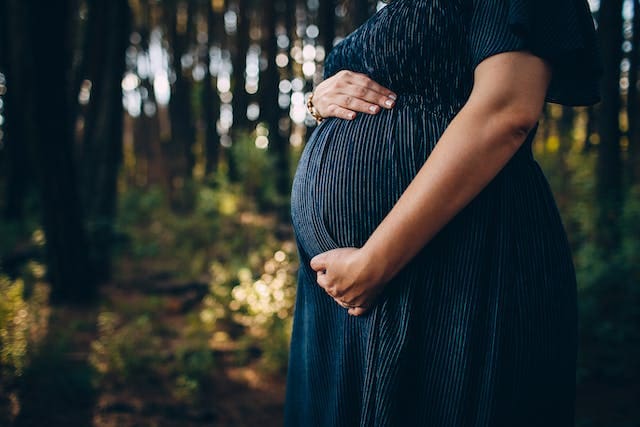Surrogacy refers to the arrangement in which a surrogate agrees to carry and give birth to a child for another person or couple.
Surrogacy is commonly sought by couples that cannot carry their own child.
Yearly, there are approximately 100 surrogacy births occurring in Australia. Recently, surrogacy has become a controversial topic due to comments made by Pope Francis in an address where he labelled surrogacy “deplorable” and “a grave violation of the dignity of woman and child”.
For some Australians, surrogacy is the only option for raising children, especially as there are so few children waiting to be matched with adoptive parents.
If you’re considering having a child through surrogacy, its important to consider the legality of the arrangement and the costs involved.
Types of Surrogacy Arrangements
There are two ways surrogacy can work:
- Traditional surrogacy: where the surrogate’s own egg is used to create an embryo with either the intended father’s own sperm or with donor sperm; or
- Gestational surrogacy: Where the implanted embryo is developed from the intended parents’ egg and sperm or a donor, but the surrogate’s own egg is not used.
There are also two different ways that a surrogate can be compensated for carrying the child:
- Altruistic surrogacy: the surrogate does not receive payment or reward for carrying the child, however the intended parents will reimburse her for any medical expenses and general costs relating to the pregnancy; or
- Commercial surrogacy: this type of surrogacy is illegal in Australia and involves the surrogate receiving financial payment or reward in conjunction with reimbursement for expenses.
Legal Requirements for Intended Parents
The legal particulars for surrogacy arrangements vary state by state. In Victoria, surrogacy is governed by the Assisted Reproductive Treatment Act 2008 (Vic).
In Victoria, a surrogacy arrangement with assistance from a fertility clinic must be approved by the Patient Review Panel. The Patient Review Panel will only approve a surrogacy arrangement if the following apply:
- A doctor has confirmed that the intended parents are unlikely to become pregnant, carry a child or give birth, or that in doing so, the woman is likely to place her life or the baby’s life at risk.
- The surrogate mother’s egg will not be used in the conception of the child.
- The surrogate mother has previously been pregnant and given birth to a live child.
- The surrogate mother is at least 25 years old.
- The intended parents, surrogate mother and surrogate mother’s partner have received counselling and legal advice.
- The parties understand the personal and legal consequences of the arrangement.
- The parties are prepared for the consequences if the arrangement does not proceed as intended, including whether the intended parents do not accept the child once born and if the surrogate refuses to hand over the child.
- The parties are able to make informed decisions about the arrangement.
Under section 44 of the Assisted Reproductive Treatment Act, commercial surrogacy is prohibited, however reimbursement for costs associated with the pregnancy and birth are allowed.
It is also illegal for a person to publish any statement or advertisement stating they are seeking a surrogate, or conversely stating that a person wishes to act as a surrogate. This makes it extremely difficult for intended parents to find someone willing to act as a surrogate, and for willing surrogates to work with intended parents.

The Role of Consent in Surrogacy Agreements
Consent is a vital aspect of all surrogacy agreements. In Victoria, the surrogate is recognised as the child’s birth mother at the time of birth, and her partner is recognised as the child’s other parent. As a result, the intended parents must have the surrogate’s consent for a parentage order to be made by the Court.
The surrogacy agreement is also not legally enforceable. This means that a surrogate can choose to not relinquish the child.

Surrogate Rights and Responsibilities
The surrogate has the same rights as any other pregnant woman in the sense that she can choose how to manage the pregnancy and the birth, despite whether the parties have made certain arrangements whether orally or in writing.
As the surrogate is considered the child’s mother at birth, if the intended parents decide not to take the child, the surrogate will be responsible for the child.
Some parents may also consider arranging surrogacy overseas in a country where surrogacy contracts are enforced in order to safeguard the arrangement. It is important to note that these surrogacy arrangements can be considerably more expensive, especially as they are usually commercial arrangements.
Parenting Orders and the Family Court
As the surrogate is initially considered as the child’s birth mother, the intended parents must apply to the Supreme or County Court for a substitute parentage order if the child was conceived in Victoria and the intended parents reside in Victoria.
This order will name the intended parents as the legal parents. The order cannot be made less than 28 days and no more than 6 months after the child’s birth.
The Court will only make the order if it is in the best interest of the child to do so, and the other requirements are satisfied, including that the Patient Review Panel had approved the arrangement.
Financial Considerations and Compensation Laws
As mentioned above, commercial surrogacy is illegal in Victoria. In saying that, the costs for surrogacy can still be quite high and can range anywhere from $10,000 to $100,000. Costs may include:
- Initial counselling and legal costs;
- IVF costs;
- Reimbursement of medical expenses and other expenses associated with the pregnancy and birth; and
- Applying to the Court for parentage orders and the associated legal fees.
Support Services for Surrogacy in Australia
Surrogacy Australia offers a support service to support both surrogates and intended parents through the surrogacy journey. They offer counselling, mentoring and support surrounding managing expenses.
At Matthies Lawyers, we are here to cater to your family law needs. Our team of family lawyers proudly serves clients in South Yarra, Toorak, Windsor, Prahran, Armadale, and Richmond.
Contact us today for expert legal advice and support or call +61 3 8692 2517.
—
Kate Scolyer – Solicitor– Matthies Lawyers
Disclaimer: This article contains general information only and is not intended to be a substitute for obtaining legal advice.


